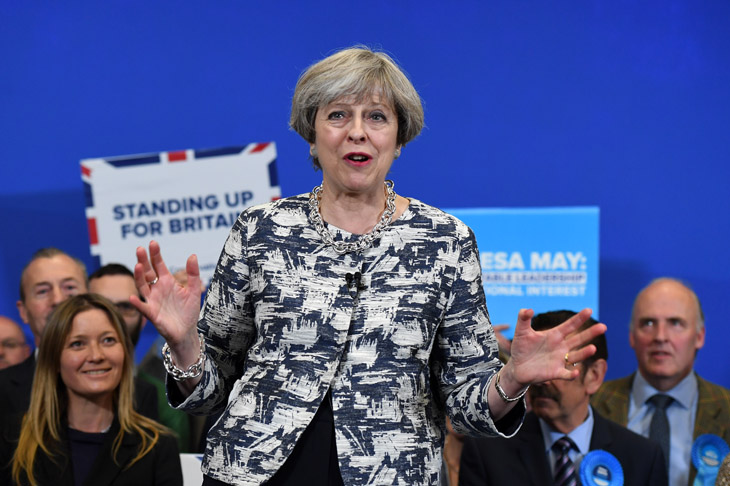As if we needed reminding, this past week has shown that the Islamist threat is a truly global problem. In the space of a few days, Isis claimed responsibility for attacks on London Bridge and Borough Market; and elsewhere, for the attack on the Iranian Parliament and the tomb of Ayatollah Khomeini in Tehran. It would be hard to think of more diverse targets than drinkers at London pubs on a Saturday night and the tomb of the theocratic Shia cleric who inspired the 1979 Iranian revolution. Yet for Isis there is logic. All are enemies: infidels, heretics, apostates.
The Tehran atrocity shows again that what we are witnessing is a civil war within Islam. To the Sunni militant, the enemy could be a girl at a music concert or a worshipper at a Shia mosque. Iran has been more involved than anyone in the Syrian civil war, sending its proxy armies to defend their country’s Shia ally in Damascus. The Isis-Iran conflict, the Saudi-Iran dispute and the emerging dispute between Qatar and everybody else goes back to the Shia-Sunni split at the beginning of Islam. As Tom Holland argues in our cover story, the jihadis are motivated by religion — and their war needs to be understood in those terms.
There was a time recently when people hoped that the Middle East would start to look more like Europe: that Turkey was turning European and that history was moving in our direction. It can seem comforting to refer to the Islamic State attackers as ‘medieval’, as if they are a historical anomaly that cannot survive in the 21st century. But this threat is also very modern.
The fact that this evil should have manifested itself twice in a British election campaign has raised uncomfortable questions for Theresa May. We are told that she was ‘shocked’ at the failings of MI5, but as Home Secretary for six years she was responsible for the agency, its resourcing and its culture. One of the London Bridge attackers is an Italian national who was on a terror watch-list when he arrived: if British policy allows such people to work here, then Mrs May will have been the one setting this policy.
If there are 20,000 people of interest and MI5 has the resources to keep tabs on 3,000 of them, then it is inevitable people will slip under the radar. The bigger question is whether people who declared their terrorist intent on a Channel 4 documentary ought to have been kept under closer supervision — and, if so, what kind of resources that would require. Another question is how many foreign nationals on terror watch-lists are living here — and ought more to be done to keep an eye on them? This is not about passing new laws, but making better use of old ones.
This was a needless election, intended to be a coronation for the Prime Minister. It turned into a white–knuckle ride at times. Mrs May’s weaknesses have been highlighted rather than her strengths, which is unfortunate. It was extraordinary to see her at one point forced on the defensive on security by Jeremy Corbyn. The reason she was able to cut police numbers is that she was so successful in cutting crime; and the police response on London Bridge was rapid and effective. Yet she struggled to make this point.
We have also seen that she struggles to work with her cabinet, keeping them in the dark and instead preferring to rely on the advice of the aides who were with her at the Home Office. The difficulty she has running a larger team has been exposed as her single greatest weakness. It is not like an England cricket captain having a ragbag of players imposed on him by an aloof selectors’ committee — a Prime Minister has the sole right to decide whom to appoint to the cabinet, and to which jobs within the cabinet.
The Prime Minister’s successes lie in areas that we do not hear much about, one of them being Brexit. On the withdrawal negotiations, at least, she has set out clear para-meters. She has made it clear that Britain will withdraw from the single market and the customs union and instead seek a free trade agreement with the EU, as well as opting into pan-European forms of co-operation on issues such as security. To Jeremy Corbyn’s credit, he too resisted the calls from Blair and Mandelson to maintain opposition to Brexit. He could see that the public has largely accepted Brexit.
During the past few weeks, Theresa May tried to campaign without her colleagues — and found herself wanting. She needs them more than she imagined she did. Just as Britain has to rebuild its relationship with the rest of the EU, she will have to rebuild hers with the Conservative party.
Got something to add? Join the discussion and comment below.
Get 10 issues for just $10
Subscribe to The Spectator Australia today for the next 10 magazine issues, plus full online access, for just $10.
You might disagree with half of it, but you’ll enjoy reading all of it. Try your first month for free, then just $2 a week for the remainder of your first year.














Comments
Don't miss out
Join the conversation with other Spectator Australia readers. Subscribe to leave a comment.
SUBSCRIBEAlready a subscriber? Log in